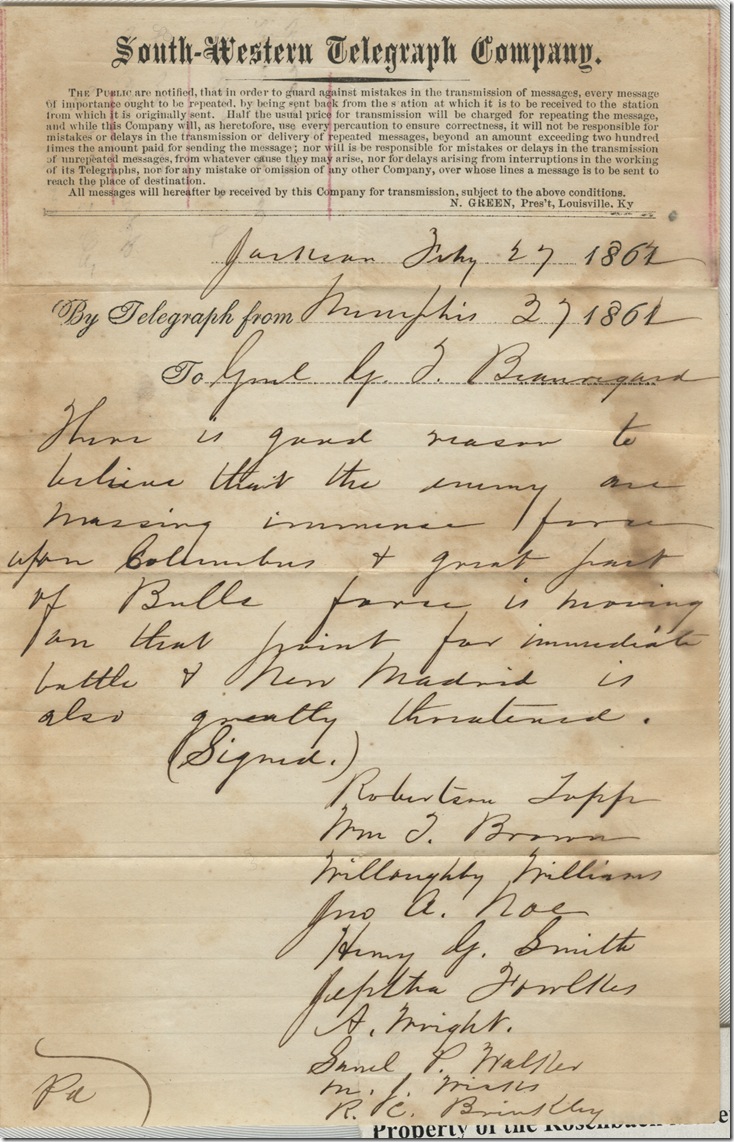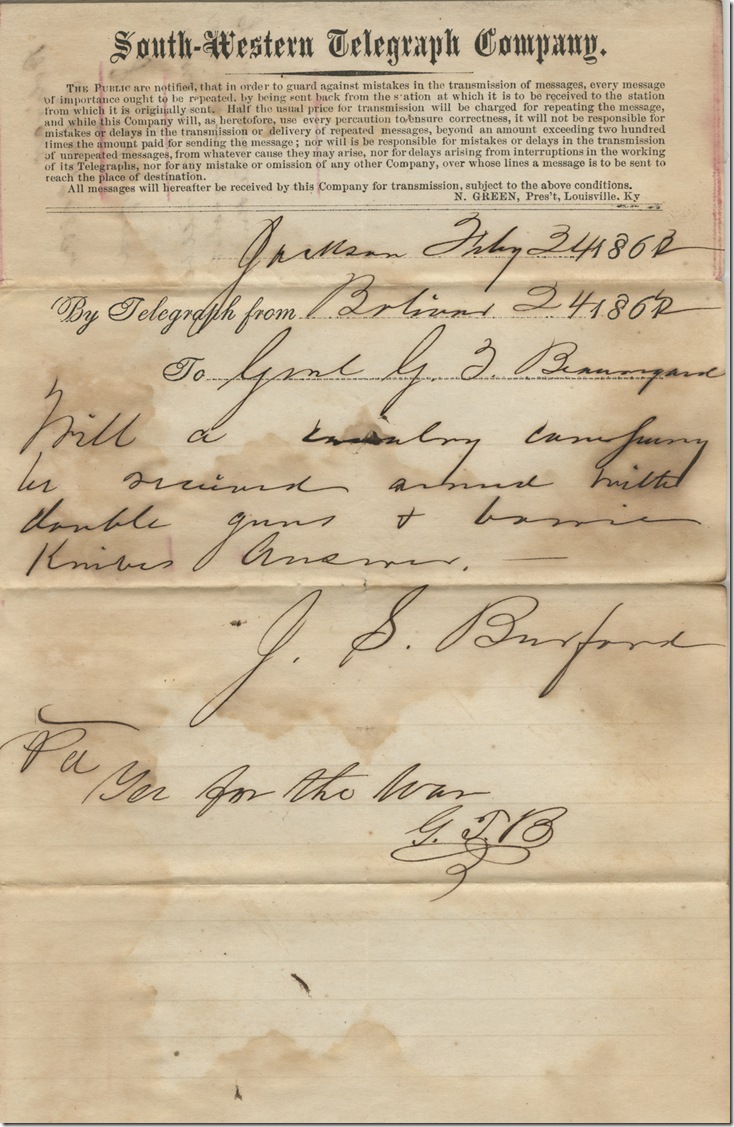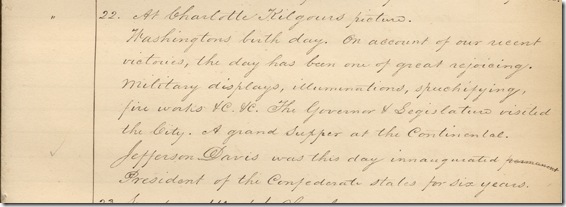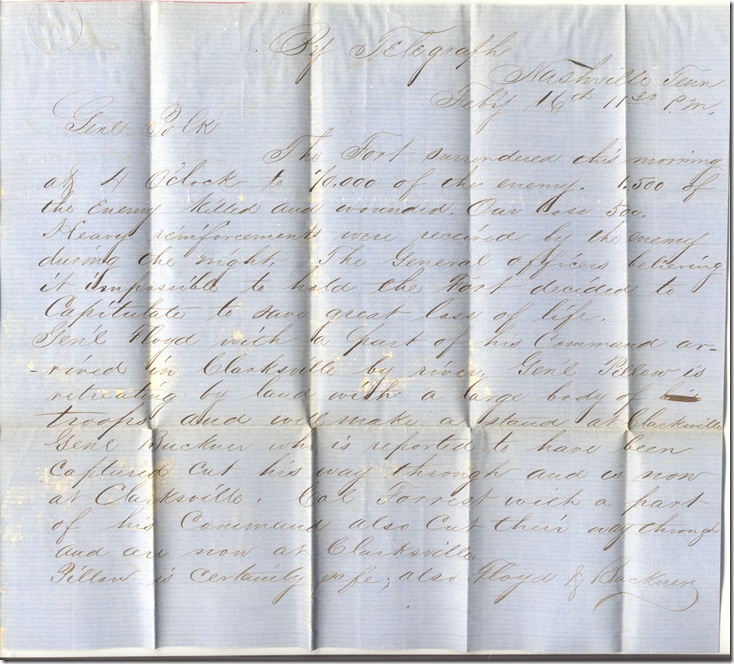Pierre Gustave Toutant Beauregard was a Louisiana-born general of the Confederate States Army. He had graduated second in his class from West Point in 1838 and was an admirer of Napoleon. He achieved fame early in the Civil War for commanding the Fort Sumter bombardment and as the victor of the first battle of Manassas. He later served in the Western Theater (including Shiloh and Corinth), Charleston, and the defense of Richmond, but his career was hampered by friction with Jefferson Davis and other generals.
This is one of approximately 1000 military telegrams in P.G.T. Beauregard’s papers at the Rosenbach.
Transcript:
Jackson Feby 27 1862
By telegram from Memphis 27 1862
To Genl G.T. Beauregard
There is good reason to believe that the enemy are massing immense force upon Columbus and great part of Bulls force is moving on that point for immediate battle + New Madrid is also greatly threatened.
(Signed.)
Robertson Tupp
Wm J. Brown
Willoughby Williams
Jno. A. Noe
Henry G. Smith
Jeptha Fowlkes
A. Wright
Samuel P. Walker
M. J. Winks
R.C. Brinkley
Pa.
Citation:Robertson Tupp and others, telegram to G. T. Beauregard. Memphis, Tenn., 27 February 1862. AMs 1168/11









